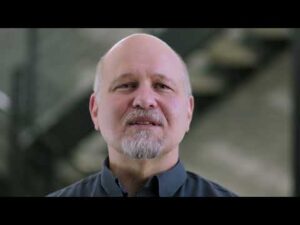Curbside consultations, the informal exchanges between primary care physicians (PCPs) and specialists, have long been a staple of medical practice. This approach allows PCPs to seek quick, expert advice without initiating a formal referral. An older study on the practice and attitudes surrounding curbside consultations still provides valuable insights into how these interactions shape medical care, highlighting both their utility and limitations. For DocSide, a platform aimed at facilitating efficient curbside consultations, these findings underscore the importance of creating technological solutions that address the gaps and maximize the benefits of this practice.
Understanding the Dynamics of Curbside Consultations
The study, conducted among 413 physicians in Rhode Island, revealed the pervasive use of curbside consultations in everyday practice. Approximately 70% of PCPs and nearly 88% of specialists reported participating in at least one curbside consultation in the previous week. On average, PCPs initiated 3.2 curbside consultations weekly, while specialists handled 3.6 requests during the same period. These interactions were primarily focused on specialties such as cardiology, gastroenterology, and infectious diseases, underscoring the demand for guidance in complex and nuanced medical areas.
The key reasons cited for curbside consultations included:
- Selecting appropriate diagnostic tests
- Determining the need for formal consultation
- Crafting treatment plans
- Interpreting laboratory or imaging results
These goals highlight the role of curbside consultations in bridging gaps in PCP expertise while avoiding unnecessary formal referrals.
Diverging Perspectives: PCPs vs. Specialists
While both PCPs and specialists acknowledged the value of curbside consultations, their perspectives on the quality and sufficiency of information exchanged differed significantly. Specialists frequently expressed concerns about the adequacy of clinical details provided during these consultations. The study revealed that:
- 80% of specialists felt that the information shared was often insufficient, compared to 50% of PCPs.
- 77% of specialists believed that critical clinical findings were frequently overlooked, versus 43% of PCPs.
This disparity points to a potential lack of trust or alignment between the two groups regarding the efficacy of curbside consultations. Specialists also noted that PCPs might feel less obligated to follow recommendations obtained informally, which could impact patient outcomes.
Efficiency and Practicality
Despite these challenges, curbside consultations offer undeniable practical benefits. Specialists reported that these informal interactions required significantly less time than formal consultations—about 8 minutes versus 51 minutes on average. This efficiency makes curbside consultations particularly appealing in high-pressure medical environments, where time is often a critical resource.
Additionally, PCPs and specialists agreed that curbside consultations:
- Saved costs for patients and third-party payers
- Served as a valuable educational tool for PCPs, helping them stay updated on medical advancements
The Implications for DocSide
The findings from this study directly inform DocSide’s mission to enhance the curbside consultation process through innovative technology. Here’s how these insights are significant:
- Bridging Information Gaps: Specialists’ concerns about insufficient clinical information highlight the need for a platform that standardizes and structures data exchange. DocSide can integrate tools such as guided prompts, diagnostic templates, and secure data-sharing features to ensure that specialists receive the information they need to provide recommendations.
- Enhancing Trust and Accountability” By creating a system that tracks and documents curbside consultations, both the referring and consulting providers share a medical note. Having written recommendations minimizes the risks of errors and associated liability. Features like automated follow-up reminders enhance accountability and trust between providers.
- Maximizing Efficiency: The time-saving nature of curbside consultations aligns with DocSide’s goal to streamline interactions between healthcare professionals. Leveraging modern technologies to conduct curbsides can significantly improve efficiency, enabling specialists to focus on more complex cases.
- Expanding Accessibility: The study revealed that curbside consultations occurred most frequently in person or by phone, with email rarely used. DocSide can expand access by offering a centralized platform that accommodates real-time messaging, asynchronous communication, and effortless documentation.
Addressing Specialist Concerns
Specialists in cognitive fields like endocrinology and infectious diseases reported receiving more curbside consultations than formal referrals, likely due to the focused, information-driven nature of these specialties. However, they also expressed frustrations about the lack of reimbursement for these interactions. DocSide addresses this by capturing charges for curbsides, ensuring that specialists are fairly compensated for their time and expertise.
Additionally, concerns about the “takeover” of patient care following formal consultations were noted by both groups. DocSide allows referring providers to deliver more complex care, keeping patients close to home and lets specialists focus on the more complex cases.
The Broader Impact on Healthcare
The widespread use of curbside consultations underscores their importance in maintaining efficient and cost-effective healthcare systems. For PCPs managing a broad range of conditions, these interactions offer a lifeline, enabling them to provide high-quality care without burdening patients with unnecessary referrals. For specialists, curbside consultations help build professional relationships and maintain a robust referral base.
However, the study also highlights the need for balance. Over-reliance on informal consultations could compromise care quality if insufficient information leads to misdiagnoses or suboptimal treatment plans. By formalizing and enhancing curbside consultations, DocSide has the potential to strike this balance, preserving the efficiency and accessibility of these interactions while mitigating their risks.
The Future of Curbside Consultations
As healthcare systems evolve, the demand for quick, expert guidance will only grow. The increasing complexity of medical care, coupled with workforce shortages and rising patient volumes, underscores the need for scalable solutions like DocSide. Imagine a platform where PCPs can submit well-structured queries supported by relevant patient data and receive expert advice in minutes. A platform where specialists feel confident in the information provided and are fairly compensated for their contributions. This is the future DocSide envisions, one where every curbside consultation becomes an opportunity for learning, collaboration, and better patient care.
The study on curbside consultations highlights both the strengths and limitations of this integral medical practice. For DocSide, these findings serve as a foundation for innovation, guiding the development of solutions that enhance the quality, efficiency, and equity of specialist care. By addressing the concerns raised by both PCPs and specialists, DocSide can transform curbside consultations from an informal tradition into a cornerstone of modern healthcare delivery. The result is a system that empowers providers, supports specialists, and, most importantly, improves outcomes for patients.
Source: Jama Network






